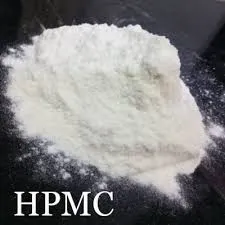
Dec . 24, 2024 10:24 Back to list
hydroxyethylcellulose powder
Hydroxyethylcellulose Powder A Versatile Polymer in Various Industries
Hydroxyethylcellulose (HEC) is a non-ionic, water-soluble polymer derived from cellulose, a natural polymer found in the cell walls of plants. Renowned for its versatility and performance, HEC powder has become a staple in multiple industries, including pharmaceuticals, cosmetics, food, and construction. This article aims to delve into the properties, applications, and advantages of hydroxyethylcellulose powder.
Properties of Hydroxyethylcellulose Powder
Hydroxyethylcellulose powder is characterized by its high viscosity and excellent film-forming ability. It is available in various grades, with differing molecular weights, which allows for tailored properties suitable for specific applications. One of the most notable features of HEC is its ability to dissolve in cold water, unlike many other cellulose derivatives that require heating. This property is particularly advantageous in maintaining the integrity of heat-sensitive components in formulations.
HEC is also pH-stable and exhibits good salt tolerance, making it effective in various formulations. Its non-ionic nature means that it will not interfere with other ionic components in a solution, allowing for greater compatibility with other ingredients. Furthermore, HEC is biodegradable and environmentally friendly, aligning with the growing demand for sustainable materials in modern manufacturing processes.
Applications of Hydroxyethylcellulose Powder
1. Pharmaceuticals In the pharmaceutical sector, HEC powder is widely used as a thickener, suspending agent, and emulsion stabilizer. It enhances the viscosity of liquid formulations, providing a controlled release of active ingredients. HEC is also utilized in gel formulations, helping to achieve the desired texture and stability. Its biocompatibility makes it suitable for use in ocular, topical, and oral applications.
2. Cosmetics The cosmetic industry leverages the properties of HEC to create luxurious textures in lotions, creams, shampoos, and conditioners. Its film-forming ability contributes to the product's feel and enhances skin adhesion, resulting in prolonged effectiveness. HEC also helps to stabilize emulsions, ensuring that oil and water phases remain well-mixed throughout the product's shelf life.
hydroxyethylcellulose powder

3. Food Industry In the food industry, hydroxyethylcellulose serves as a low-calorie thickening agent, stabilizer, and emulsifier. It is particularly valued in gluten-free products, where it helps improve texture and moisture retention. HEC is also used in sauces and dressings to control viscosity and enhance mouthfeel without significantly impacting taste.
4. Construction In construction and building materials, HEC powder plays a crucial role as a water-retaining agent in cement, plaster, and tile adhesives. Its ability to retain water increases workability and extends the lifespan of the materials. HEC also improves the cohesion and adhesion properties of these substances, resulting in stronger and more durable applications.
Advantages of Hydroxyethylcellulose Powder
The use of hydroxyethylcellulose powder offers numerous benefits across industries. Its versatility allows manufacturers to create a wide range of products while meeting various regulatory requirements. The ability to function effectively in both cold and hot processes is a significant advantage, simplifying formulation strategies without the need for additional heating processes.
Moreover, the film-forming and thickening properties of HEC improve the overall sensory and functional performance of products. It helps in creating a desirable texture, enhancing user experience in cosmetics and food products, and increasing the effectiveness of pharmaceuticals.
Finally, with the push towards environmentally friendly products, HEC's biodegradable nature presents an appealing option for companies looking to reduce their ecological footprint while still delivering high-quality products.
Conclusion
In summary, hydroxyethylcellulose powder is a highly efficient and versatile polymer that plays an essential role in various industries. Its unique properties and performance benefits make it an invaluable ingredient for enhancing the functionality and application range of numerous products, fostering innovation, and promoting sustainable practices. As research and development continue to evolve in polymer science, the potential uses and benefits of hydroxyethylcellulose will likely expand, solidifying its importance in modern manufacturing.
-
Versatile Hpmc Uses in Different Industries
NewsJun.19,2025
-
Redispersible Powder's Role in Enhancing Durability of Construction Products
NewsJun.19,2025
-
Hydroxyethyl Cellulose Applications Driving Green Industrial Processes
NewsJun.19,2025
-
Exploring Different Redispersible Polymer Powder
NewsJun.19,2025
-
Choosing the Right Mortar Bonding Agent
NewsJun.19,2025
-
Applications and Significance of China Hpmc in Modern Industries
NewsJun.19,2025







